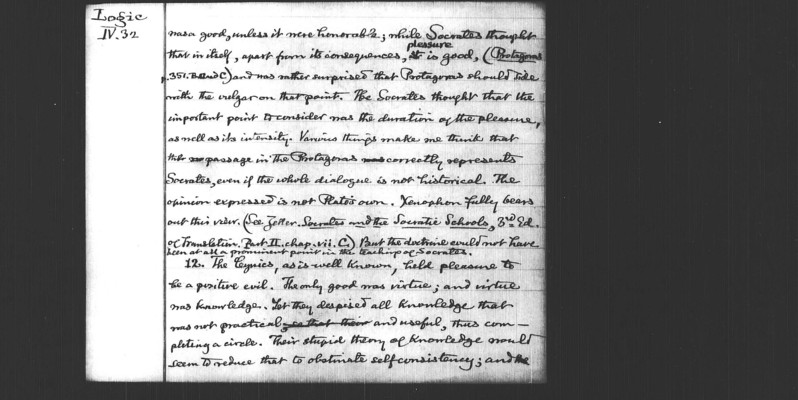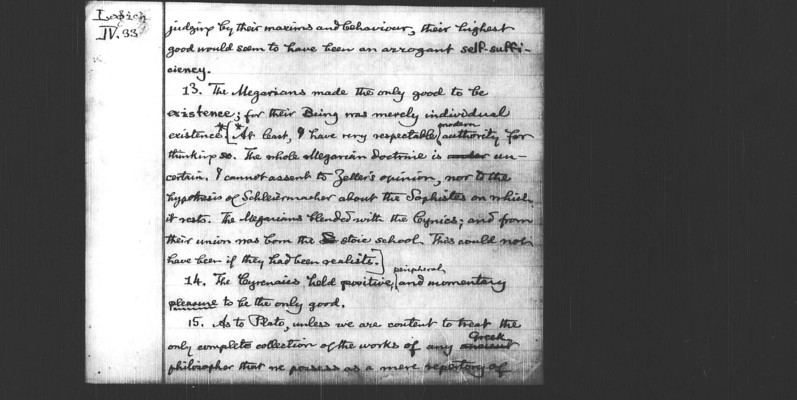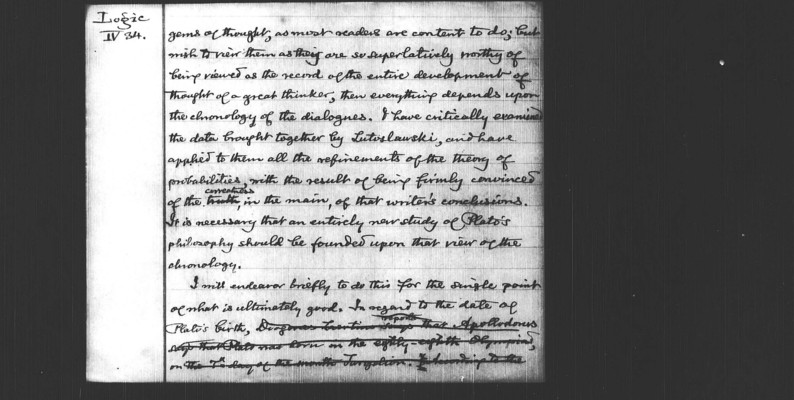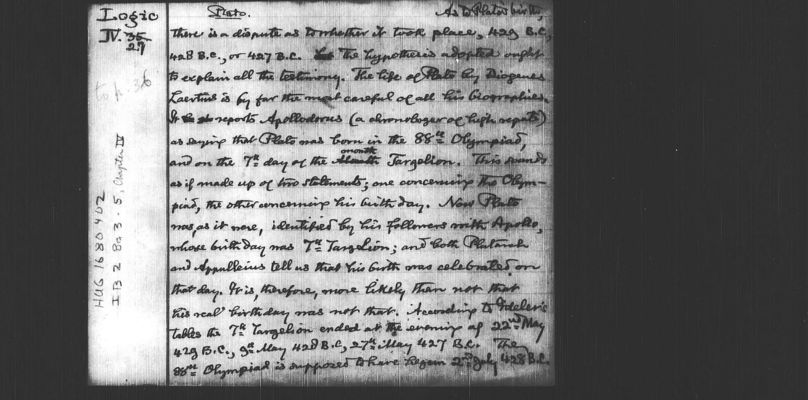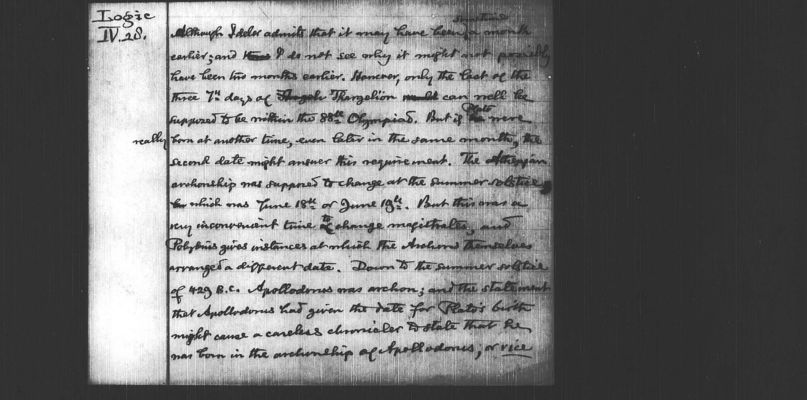Pages
21
Logic IV. 32 was a good unless it were honorable while Socrates thought that in itself apart from its consequences pleasure is good (Protagoras p. 351, B and C) and was rather surprised that Protagoras should side with the [relgar?] on that point. He Socrates thought that the important point to consider was the duration of the pleasuer as well as its intensity. Various things make me think that this passage in the Protagoras correctly represents Socrates, even if the whole dialogue is not historical. The opinion expressed is not Plato's own. Xenophon fully bears out this view. (See Zeffler. Socrates and the Socratic Schools 3rd Ed of Translation. Part II Chap. vii C) But the doctrine could not have been at all a prominent point in the teachings of Socrates. 12. The [Cynics?] as is well known held pleasure to be a positive evil. The only good was virtue and virtue was knowledge. Yet they despised all knowledge that was not practical and useful thus completing a circle. Their stupic theory of knowledge would seem to reduce that to obstinate self-consistency and
22
Logic IV. 33 judging by their maxims and behavious their highest good would seem to have been an arrogant self-sufficiency. 13. The Megarians made the only good to be existence for their being was merely individual existence. At least I have very respectable modern authority for thinking so. The whole allegarian doctrine is uncertain. I cannot assert to Zeller's opinion nor the hypotheses of Schleiermasher about the Sophistes on which it rests. The Megarians blended with the Cynics and from their union was born the stoic school. This could not have been if they had been realists. 14. The Cyrenaics held positive peripheral and momentary pleasure to be the only good. 15. As to Plato unless we are content to [hear?] the only complete collection of the works of any Greek philosopher that we possess as a mere repertory of
23
Logic IV 34. gems of thought as most readers are content to do but wish to view them as they are so superlatively worthy of being viewed as the record of the entire development of thoguht of a great thinker, then everything depends upon the chronology of the dialogues. I have critically examined the data brought together by [Lutoslauski?] and have applied to them all the refinements of the theory of probabilities with the results of being firmly convinced of the correctness in the main of that writers conclusions. It is necessary that an entirely new study of Plato's philosophy should be founded upon that view of the chronology. I will endeavor briefly to do this for the single point of what is ultimately good. In regard to the date of Plato's birth,
24
Logic IV 27 Plato. As to Plato's birth There is a dispute as to whether it took place 429 BC, 428 BC or 427BC. The hypothesis adopted ought to explain all the testimony. The life of Plato by Diogenes Laevtius is by far the most careful of all his biographies. It reports Apollodorus (a chronologer of high repute) as saying that Plato was born in the 88 Olympiad and onthe 7th day of the month Targelion. This sounds as if made up of two statements, one concerning the Olypiad, the other concerning his birth day. Now Plato was as it were identified by his followers with Apollo whose birth day was 7th Targelion and both [Platarch?] and Appulleius tell us that his birth was celebrated on that day. It is therefore more likely than not that his real birthday as not that. According to [Ideler's?] tables the 7th Targelion ended at the evening of 22nd May 429 BC, 9th May 428 BC, May 427 BC. The 88th Olympiad is support to have begun 2nd July 428 BC
25
Logic IV 28.Although Idelar admits that it may have been sometime a month earlier and I do not see why it might not possibly have been two months earlier. However only the last of the three 7th days of Thargelion can well be supposed to be within the 88th Olypiad. But if Plate were really born at another time even later in the same month the second date might answer this requirement. The [Athenian?] [ovohonship?] was supposed to change at the summer solstice which was June 18th or June 19th. But this was a very inconvenient time to change magistrates and [Poly?] gives instances at which the Archons themselves arranged a different date. Down to the summer solstice of 429 BC. Apollodorus was archon and the statements that Apollodorus had given the date for Plato's birth might cause a careless chronicler to state that he was born inthe archonship of Apollodorus or vice
